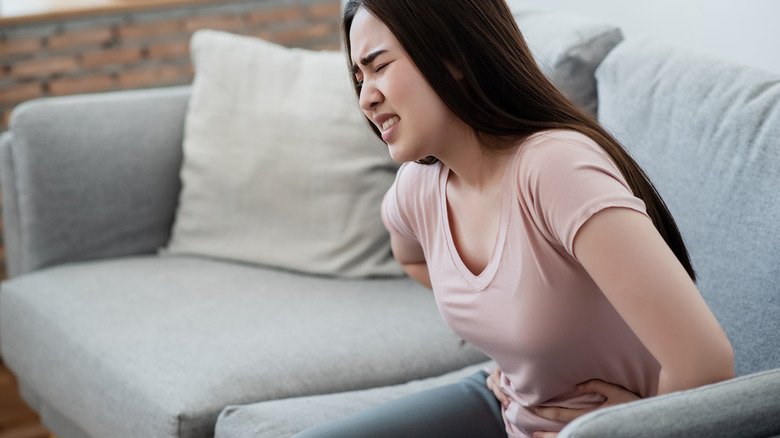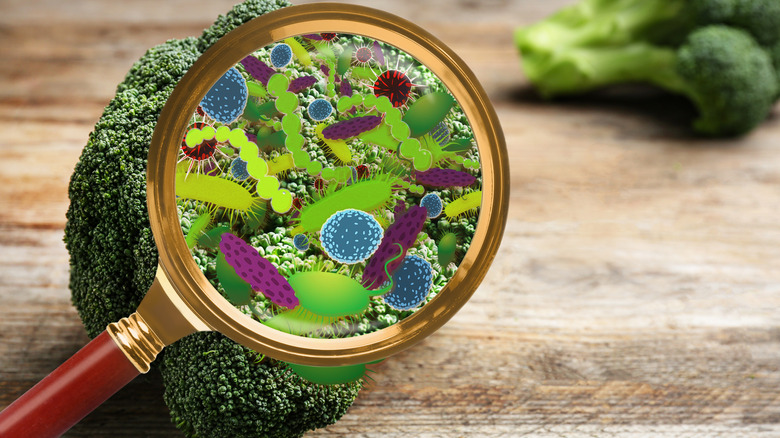The First Thing You Should Do If You Think You Have Food Poisoning
The last thing anyone ever wants is to realize they're developing food poisoning. After making sure a bathroom is nearby, there are a few things that should be top priority if you think you have food poisoning.
Food poisoning happens when you eat food or drink water that's been contaminated, spoiled, or is toxic, according to Healthline. Parasites, bacteria, and viruses are usually to blame. While these are typically found in foods, they are often killed in the cooking process, so raw foods are common culprits. Symptoms can begin in as short as 30 minutes or as long as 8 weeks, depending on what is causing the infection.
Typically, symptoms of food poisoning include diarrhea, abdominal cramps, nausea, vomiting, weakened appetite, headache, and mild fever (via Healthline). These symptoms typically go away within about a week. Symptoms are considered severe and potentially life-threatening if diarrhea lasts longer than three days, your fever reaches 102 degrees or higher, there is blood in your urine, you have difficulty seeing or speaking, or you have symptoms of severe dehydration.
How to treat food poisoning
If you think you have food poisoning, the top priority is replacing lost fluids, via WebMD. Dehydration can occur if you experience lots of vomiting or diarrhea. Since electrolytes like sodium and potassium will be thrown off, it's important to replenish. You should drink plenty of fluids, like water, broth, or an electrolyte solution like Gatorade. You may want to start with small sips or even ice chips if you can't hold down a lot of fluids. In addition, be sure to stay away from drinks that will dehydrate you further, like coffee and alcohol, and avoid food until your stomach settles.
A person might be more susceptible to food poisoning if they're over 65 years old, younger than 5 years old, have a weakened immune system, or are pregnant, according to the Centers for Disease Control and Prevention (CDC). This is because these groups of people may not be able to fight infections as easily. The four steps to preventing food poisoning are to clean your hands, utensils, and work surfaces; separate raw meats and eggs away from other foods; cook meats to the proper internal temperature; and chill your leftovers within two hours of cooking (via CDC).


